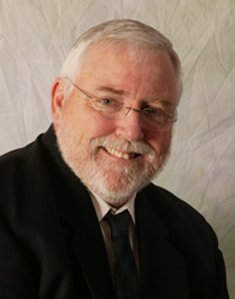By: Dan Murray
America is a nation of volunteers. The US Department of Labor Statistics reported in 2008 that 63.4 million Americans, 27 percent of the population volunteered in some capacity in 2008. From volunteering for the military to reading to children at the local library, Americans step up to fill a critical role providing services that might not otherwise be available due to expenses or available personnel. Volunteers from America travel around the world to give of themselves in the service of others. 
One of the most exciting and rewarding volunteer opportunities is in the area of Hospice care. Hospice is a service that provides compassionate care and comfort for terminally ill patients diagnosed with an illness whereby the patient and their family have decided to discontinue further treatments and focus on the compassionate comfort of the patient. Hospice is a comprehensive care system designed to provide the patient with the best quality of life during the time prior to their death and to fulfill the patient’s wishes during the dying process. Hospice volunteers come from a wide variety of cultural backgrounds and professions assuring that the diversity of individual needs can be met.
The Hospice team consists of doctors, nurses, nursing assistants, social workers, spiritual counselors and volunteers. Hospice care extends beyond the patient to include the family and caregivers who often need support and encouragement to meet the challenges of caring for the patient. Hospice volunteers are an equal partner in the circle of care fulfilling an important need. For example, a patient may find it easier to talk openly with a volunteer who is there just to be their friend and companion as opposed to a professional whose role is more formal and defined.
The Hospice volunteer training includes sixteen hours of classroom instruction, a supervised orientation visit with a patient and in service training several times per year. The classroom instruction includes the history and philosophy of Hospice, ethics, an overview of the common Hospice diagnosis, family dynamics in terminal illness, hygiene, grieving and bereavement process, confidentiality requirements, elderly abuse and mandated reporter requirements. Volunteers are trained to assist the social worker and chaplain in providing comfort to patients and families with the spiritual and emotional challenges they face.
Once assigned to a patient Hospice volunteers engage in a variety of activities that help the patient and their families. Spending time reading to the patient, playing cards and games, watching a movie together, providing friendship and companionship to the patient. Volunteers also help the families by providing much needed respite relief for the primary caregiver.
There are specialized volunteers such as musicians, massage therapists, hair and makeup artists and therapy dog owners that donate their skills and gifting to brighten the patients day. Volunteers bring many life experiences into the volunteer experience where they have the chance to touch others with their unique abilities.
Hospice volunteers are trained to assist the family during the active dying process and after death. Families and caregivers appreciate having someone there who can provide comfort and assist with the tasks that need to be performed when the patient dies. Volunteers can help the family with the arduous process of saying good-bye to their loved one.
There are many options for an individual who wants to volunteer and Hospice volunteering is unique and fascinating. Volunteers have the privilege of participating in providing for a quality end of life journey based fulfilling the wishes of the patient.
For more information go to www.hospicevolunteerassociation.org
Dan Murray
Chaplain/Volunteer Coordinator
Verdugo Hospice Care Center
4170 Verdugo Road
Los Angeles, Ca. 90065
Phone 323-257-5715
email: dmurray@verdugohospice.com
web site www.verdugohospice.com

|